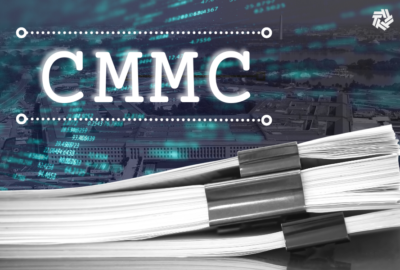How military service members can start building wealth early
To young service members, the idea of building wealth might seem like a pipe dream. They don't earn much and often have high borrowing and housing costs.
To young service members, the idea of building wealth might seem like a pipe dream. They don’t earn much and often have high borrowing and housing costs. But it’s never too early to start. For some pointers, the Federal Drive with Tom Temin turns to the president of the Navy Mutual Aid Association, retired Navy admiral. Brian Luther.
Interview transcript:
Tom Temin
And this idea of building wealth. This is what we tell our kids when they get their first job, start saving. Sometimes they start out as young stock brokers. That’s one thing. Sometimes they start out as young service members. That’s something else.Brian Luther
It is. I like how you phrased it, start saving now. There are some things that are common for wealth building for people in and out of the military. And then there are some things that are unique to the military. The military has some tax advantages, tax free benefits that they can do. But regardless of service, in service or out, you should start now. There’s a proverb, when’s the best time to plant a tree, today. 20 years ago, the next best time is today. So starting today and putting time on your side, and the benefit of compound interest, if you start now, time and compound interest will take care of the rest.Tom Temin
And what’s a good rule of thumb for saving what you can or $1 a week, $10 a week. How do you how do you get started?Brian Luther
So there’s two things we tell people. One is, you start with a plan, and the plan will include a budget, so you can understand what it is. And the second thing is, it’s not the amount you put in, it’s the frequency. And so for a young sailor, soldier, airman, Marine just starting out, they can expect that they’re going to get periodic longevity and pay increases or cost of living increases or pay increases with promotions. So if you have established a habit of saving, and then each time you get a pay raise, and you take a portion of that pay raise and put it into your investments and the other goes into your budget, you will always get a pay raise, you will always increase your investments, and you’ll never take a pay cut to protect your future. That’s the first thing we tell people.Tom Temin
And does the military offer mechanisms that make it easy to have that, say, deduction from your paycheck, so that it becomes automatic?Brian Luther
Yes, they do. They they start out with the Thrift Savings Plan, which is very similar to a 401K. It has matching. So we recommend young people never miss the match, because that’s free money. So you should start, if it’s a 5% match, you should work to get up to 5% as quickly as possible, and it comes out of your paycheck and allows the military member to pay themselves first.Tom Temin
And from the standpoint of the military service member, specifically, give us a picture of what, especially someone that is lower rank or starting out in the military, maybe the first few years in, What does their financial life look like relative to someone in the private sector, which may have different structure to their economic lives?Brian Luther
Sure. So depending on the service, when I mentioned about the tax free benefits, they could have housing paid for. They can have their food paid for if they’re living on base, and so they can get these at a discount. Their military care is provided to them. There’s no requirement for disability insurance, because all that medical, all that risk that you cover with your different insurances, medical and disability and whatnot, they’re all covered by the military. So when they come in, most of the room and board costs are covered for them, and then it’s what they do with the rest of the money, and where our education efforts are, because there are numerous predatory lenders that now that they know there’s somebody with a guaranteed paycheck that they try and get them into a loan or a car or something at a ridiculous price and the loan amount, and then the sailor is obligated, and that consumes too much of their income.Tom Temin
Right. That’s a good piece of advice to go along with the savings is cost avoidance, and everybody would like to have that $75,000 Ford f150 Lariat, and I’m sure there’s a dealer near every base that would loan them at 3, 4, 5, percent for seven years, but then you’re buying the truck three times.Brian Luther
Right. Except they’ll do it at 7, 8, 9, percent, because these young people don’t have the credit history, and so they have a low credit score because they haven’t built up their history. And so they will explain that the sailor is a risk, and they have to pay for that risk, whereas if they went to any military affiliated credit union or military affiliated bank, they would get a much better deal. But those lenders work to keep them in that ecosystem and then take advantage of them.Tom Temin
What is it that Dave Ramsey says, the well known radio financial consultant is, if you want to be broke all your life, put money into automobiles.Brian Luther
Yeah, or, in my case, a boat.Tom Temin
That’s right. You haven’t sold it yet to have the really best day of your life.Brian Luther
Yeah. So a hole in the water you pour money in.Tom Temin
We were speaking with Brian Luther. He is retired Navy admiral and president of the Navy Mutual Aid Association. And so that’s the young service member. What about someone early middle career that might have received officer status, they’re getting moved around to different assignments, then you may have rent and housing costs come into the picture.Brian Luther
So again, we’ll start with the benefits work your entire career. So even at a senior rank, sometimes there’s base housing. But even if there’s not, there’s the basic allowance for housing that is correlated to the region that you’re in, so they will give you enough money to rent a house so you can move to these different areas, and your total compensation will increase so that you can live inside an acceptable house in that area. So you don’t necessarily have to go out of pocket, just because the military is making you move to these other areas. The other thing is, when they start as you say, as you get older, maybe you have a spouse, maybe you have kids, you have this house, you are making a little extra money. Your investment plan. Because, remember, we started with a plan. Now you should be thinking about creating different investment other than the TSP, because that’s a qualified tax account. If you need to put a down payment on a house, it’s harder to get that money out than if you started an investment account. So you can start as you get a little bit older, you can say, Ok, I’m putting some money in TSP, but I need a brokerage account so I have this access, and that can double down. We recommend people have a rainy day fund, an emergency fund for the military, they let you store a bunch of leave or PTO, and you know your contract time generally is measured in years. So you don’t have that concern where I could get laid off all of a sudden. So the demands for emergency fund while you’re active duty, you’re under contract can be a little bit low, but you still want a rainy day fund in case you have those emergent expenses, tires, refrigerator goes something along those lines.Tom Temin
So as you get older, you might acquire spouse and family and so forth, then you would need liquid assets, more liquid than the TSP.Brian Luther
Sure, absolutely and the consideration for like, in our case, we’ll talk to them about life insurance, because sometimes military members go in harm’s way. And so as you have this family in the house, you’re concerned about, how is my family going to be taken care of once I go into harm’s way? So that’s part of your plan. And those assets in the beginning and that risk protection you’re doing carry different roles. So in the beginning, you’re trying to replace you. Should you not come back and then at the end, it’s how can this help my retirement or place income for my spouse? If I pass first.Tom Temin
And getting back to the TSP, then, just like any other federal employee, as you get older, progress through your career, your risk profile changes, and therefore your mix of funds that you invest in should probably change. But I guess our rule of thumb here is always avoid too much dependence on the G fund.Brian Luther
Sure. So GSP is good for a couple reasons. The first, we tell people it’s got very low costs. I have a little acronym when we give talks, it’s retire. And I talk about risk, education, taxes, investments, retirement planning and estate planning. And so when you talk about education and investments, you can be overwhelmed with all the information that’s out there. So an advantage of TSP is the simplicity. But you should educate yourself at what’s in the fund to your point, the G fund or the F Fund. And so the TSP can make it simple for you and give you a target date fund that you can invest in. Or if you want to have a little more control, you can say, I’d like to invest in a large cap and small cap fixed income. But again, to your point, as you progress down your financial life journey, when you’re younger and you have a long time horizon, maybe I’m higher in equities, when I’m closer to retirement, I want a little less volatility and a little more fixed income. So TSP will offer you that.Tom Temin
And for those in the military, it might be, I would think wise to consider Roth IRA types of investments, because often after a 20 year career, you still have a lot of working years left, and you might have higher income at that point.Brian Luther
You do. And that’s why the T in that retire acronym is taxes. And if you haven’t mapped out your plan. Again, to your point, the Roth will phase out. So there’s a window of opportunity to put that Roth into place that you can do it. You can always use a back door method, but you have to understand your usage of IRA. And so that’s how you get that money in. And so when you retire, and so federal employee can have their federal employment, they can have their Social Security, they can have their investment income. Remember, if you got a million dollars in TSP, you’re really 750,000, because that’s a taxable account, and that money is going to get taxed at ordinary income. Maybe 800,000, depending on your tax bracket. But again, you have to figure out where am I going to take money and when am I going to take money to minimize the taxes that I want to pay. You may want to pay as much taxes. I’m not that guy, I want to minimize my tax so I can maximize what I’m able to spend in my retirement.Tom Temin
And do you know of any? We have a term here, coined by our late correspondent, Mike Causey of TSP millionaires that you mentioned. Is it possible to accumulate a million in the TSP during 20 years of military service?Brian Luther
It is. A couple variables. Again, I’ll tell people, it’s not the young people like Bitcoin, the latest phase or AI. Did people want to jump in and chase the fast money? They call it my response to that is, it’s not timing the market. It’s your time in the market. The market averages 8% a year over time. But if you’re out of the market, when it’s having some of these run ups, you’re not going to get these things. So it’s really the tortoise, the slow and steady. You put it in, you keep putting it in, and then you just keep it working for you. And like I said earlier, time and compound interest will do the rest. But if you give up the first 10 years of your career, it’s really hard. You have to add so much more money to recoup the money that you would have made if you put even a smaller amount in. And we circle back to the beginning of the conversation, the best thing you can do is start now, even if it’s a little bit, and then grow it from there.
Copyright © 2024 Federal News Network. All rights reserved. This website is not intended for users located within the European Economic Area.
Tom Temin is host of the Federal Drive and has been providing insight on federal technology and management issues for more than 30 years.
Follow @tteminWFED







